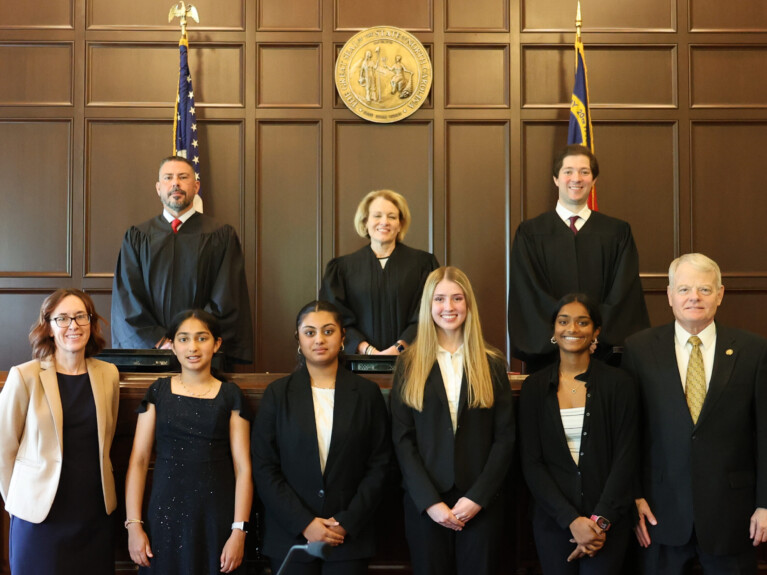Pro Bono Spotlight: Adam Arthur
 By Katherine Asaro, NCBA Pro Bono Committee Recognition Co-Chair
By Katherine Asaro, NCBA Pro Bono Committee Recognition Co-Chair
“In general, I am a firm believer in “To whom much is given, much will be required.” I have been blessed with some skills and talents. Fortunately, I have been able to make a career using those skills and talents and I find it important to give back and be of service to others.” Meet Adam Arthur, attorney at Arthur & Kirkman, LLC, and pro bono provider extraordinaire. He volunteers with Court Watch of North Carolina which has recently begun efforts to re-brand itself as Court Support for Families. In addition, he been involved in the NCBF’s 4ALL Statewide Service Day for a number of years. He is a frequent participant in the NCBF/ABA Free Legal Answers Project. And since 2012, he has served on every Guilford Co. District Court Civil Local Rules Committee which has been constituted. Please note this is not a complete list of all Adam’s volunteer contributions.
For this article, we focused on Adam’s work with Court Watch of North Carolina (“Court Watch”), for which he was nominated for a 2023 NCBA Pro Bono Award. In early 2017, Adam joined the Board of Directors of Court Watch. In the fall of 2017, the Board nominated and appointed him as Vice President and Vice Chair of the Board. Shortly thereafter, the then current President took a job which required his relocation out-of-state, and as a result, and Adam assumed the duties of President and Chair of the Board. He served in that role from the fall of 2017 until the summer of 2021. Since then, he has continued to serve as a Director on the Board of Directors.
Court Watch / Court Support presently, has three primary areas of service: (1) Pro Se Program, (2) Process Server Program, and (3) Educational Courses; and is exploring a fourth area of service which has not yet been announced. The Pro Se Program provides Packets/Materials for those who want to pursue custody litigation in a self-represented capacity. Through the Process Server Program, Court Watch /Court Support supports local Child Support Enforcement Agencies by engaging a private process server to serve paperwork that the Child Support Enforcement Agency has been unable to serve. The Process Server Program has an over 90% success rate, which is amazing considering they only get involved after several failed attempts to obtain service. Court Watch / Court Support’s primary educational course is teaching a Parenting Educational Course mandated by the Guilford County District Court for all custody litigants. Court Watch / Court Support also occasionally offers Continuing Legal Education (CLE) for attorneys and paralegals.
Adam has been involved with all of Court Watch programs to some degree. Currently, he leads the organization’s efforts to revise, modernize, and enhance the Pro Se Program’s paperwork to make it more accessible, digital, and helpful to self-represented litigants. He also often serves as one of the course instructors/teachers of the Parenting Education Course.
When asked “who are the people served by this pro bono work?”, Adam responded, “It might sound cliché, but the entire public benefits and is served by the organization’s work.” By working to ensure that everyone, not just those who can afford to hire a lawyer, has the ability to bring their disputes over child custody (through the pro se program) and child support (by aiding in the service of court documents) to the courts, reduces the conflict in our community, reduces the level of domestic violence, enhances the development of our children (so they are not in the middle of conflict, constant arguing, etc.), and reduces the burden on the taxpayers. If courts are not readily accessible to resolve disputes over child custody, parents often resort to other means in the midst of conflict – which often involves request for law enforcement assistance (which cost taxpayers money, and takes these officers away from responding to other needs) and occasionally there is violence. However, if parents can bring their dispute before the court, the court can enter a custody order – which often greatly reduces the conflict between the parents, provides predictability in scheduling (ex. parent are not constantly haggling over when they will see their children).
Thank you to Adam for his dedication to providing access to justice through myriad pro bono activities and commitments. We are lucky to have him in the profession.


